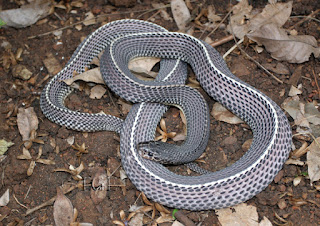Symptoms of snake bite in cats and how to treat it | Pet Peeves - The Northwest Florida Daily News

Dear Readers,
This warm weather has caused the snake population to wake up and begin to move. Our area is seeing a lot of snake bite occurrences in the dog population. Not all these incidents have had positive outcomes. Some pets, even with antivenin, have not survived.
Snake bite symptoms and treatment
It is important to know what to do if a snake has bitten your pet. You may not even see it happen. Your dog or cat comes in the house with an odd swelling on its face, chest or paw. The tissue that is swollen is usually weeping blood or dark black fluid. It is very painful to the touch. The pet may be having trouble walking. Cats are particularly susceptible to snake venom and can succumb very quickly.
If your pet is bitten by a snake, keep it as calm as possible. Try not to cause the heart to race. Do not apply a tourniquet. It can cause severe damage to the circulation. Take your pet to the nearest veterinarian or emergency service. This is crucial because your veterinarian will have the tools to treat the snake bite.
There are basically two kinds of snakes we deal with in the Panhandle: Vipers and coral snakes. The coral snake's venom is neurotoxic. It affects the brain and nervous system, and causes them to shut down. It's bite is always fatal to dogs and cats. There is no cure for the coral snake bite.
Vipers include copperheads, water moccasins, rattlesnakes, and pigmy rattlers. They have a venom that is hemotoxic and cytotoxic. "Hemotoxic" means toxic to the blood. This venom causes the blood not to clot. "Cytotoxic" means toxic to the cells. It damages and kills the tissue at the site of the wound and it damages the blood vessels, causing them to rupture easily. Deteriorating tissue and unstoppable bleeding is a lethal combination.
Previous Pet Peeves column: Alternatives to using CBD oil for dogs' arthritis pain | Pet Peeves
More: Spaying your cat ends unwanted kittens' suffering. How else does it help cats? | Pet Peeves
The venom of the viper group can be counteracted by a multivalent antivenin. It neutralizes the hemotoxic and cytotoxic effects. Determination about need for antivenin is based upon the severity of the bite, the attitude and appearance of the pet and coagulation panels which measure the blood's ability to clot. There is a small chance that a pet may have an allergic reaction to antivenin, so the need for the antivenin must be weighed against the risk of reaction.
Not all regular veterinary clinics keep antivenin on hand. It is very expensive and is often only found on site at bigger, high-volume veterinary hospitals. It is definitely available at all veterinary emergency clinics.
If the bite occurs during the day and the veterinarian does not have the antivenin in stock, have them call around until they find it. It needs to be administered within the first six hours, but the sooner it is started the better. The antivenin neutralizes the venom; it does not reverse tissue damage that has already occurred. Treatment can be repeated within the 24 hours following the bite injury.
Antivenin is not a sure cure. Some snake bites are so powerful that even with treatment the pet does not make it, but given quickly it can be a very big help in survival.



Comments
Post a Comment